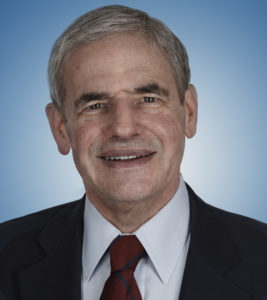Each week I collect the resources related to leadership I shared on social media the prior week, with the accompanying quotations.
……..
John Spence: “Steps to Being a Better Leader” (1-9-23).
“Treat people with dignity and respect. Go out of your way to show genuine appreciation. …. Show compassion. Leaders set the tone. Set a tone of kindness and love.”
……..
Lynda Gratton:
“Flexibility Is Key to Integrating Meaning and Work” (1-10-23).
“[W]hile corporate purpose statements may have a signaling value, the opportunities to embrace purpose are so much richer. It’s fundamentally more valuable when employees can engage with what is important to them using the discretionary time they have, their capacity to shape their jobs, and their willingness to make new connections. Smart employers are seeing this and welcoming it.”
…….
David Burkus: “Developing Emotional Intelligence As A Leader”
(1-16-2-23).
“[W]e’ll outline ways of developing emotional intelligence as a leader based on the four elements in Daniel Goleman’s original research: Self-Awareness, Self-Regulation, Empathy, and Social Skills. ….
….
For leaders, the best place to start improving social skills is by practicing active listening.”
……..
Kellogg Insight, Kellogg School of Management:
“How Self-Reflection Can Make You a Better Leader:
Setting aside 15 minutes a day can help you prioritize, prepare, and build a stronger team” (12-2-16; updated 4-19-22).
“Instead of constant acceleration, [Harry M.] Kraemer says, leadership demands periods of restraint and consideration, even—perhaps especially—during a crisis. Leaders must regularly turn off the noise and ask themselves what they stand for and what kind of an example they want to set.
…. ‘What are my values, and what am I going to do about it?'”
……..
Austin Suellentrop and E.Beth Bauman of Gallup:
“How Influential Is a Good Manager?” (6-2-21).
“Great managers aren’t great managers because they all manage the same way. They are great because they manage their way.
The first step to developing better managers is knowing just how important it is for them to succeed. Managers — more than any other factor — influence team engagement and performance. That’s not an exaggeration: 70% of the variance in team engagement is determined solely by the manager.”
……..
“RTO” means “Return to Office.”
Great leaders attract and retain people, while poor leaders try to bully them.
Jennifer Liu, CNBC Make It:
“Bosses are increasing RTO requirements, but experts say it won’t stick: ‘We’re at an inflection point’” (1-20-23).
“‘Onsite work requirements are being reintroduced, but employers are walking them back because employees are increasingly unwilling to comply with those requirements, and organizations are unsure or reluctant about how to enforce them, even though they’re technically in place,’ Duffy says.
Workplace experts say the state of remote, hybrid and in-person work is reaching an equilibrium point and that today’s level of RTO will probably stay put, even in the face of recession warnings.”
……..
Jeff Dyer, Nathan Furr, Curtis Lefrandt, and Taeya Howell:
“Why Innovation Depends on Intellectual Honesty:
Fostering psychological safety isn’t enough if managers don’t pay particular attention to creating conditions for healthy debate.”
(1-17-23).
“The most innovative teams over the long term are those that balance psychological safety with intellectual honesty. Members of innovative teams may think of themselves like the inspiring teacher who pushed them to be their best. They feel safe to speak up when they see things differently, and they willingly push one another to be the best as they pursue common goals.“




